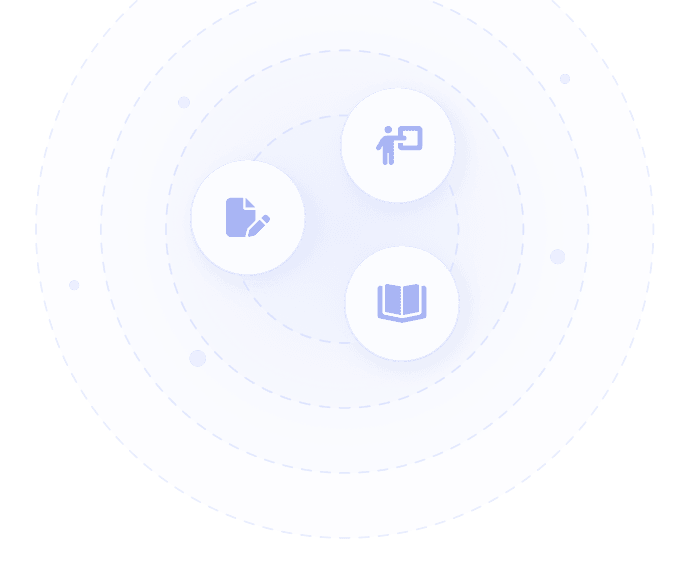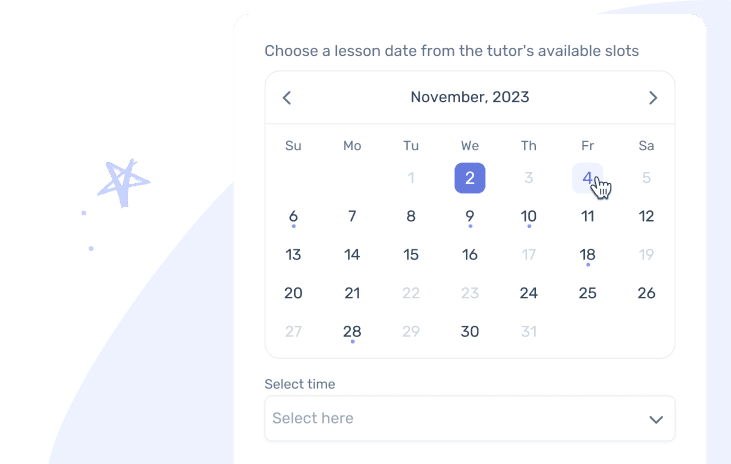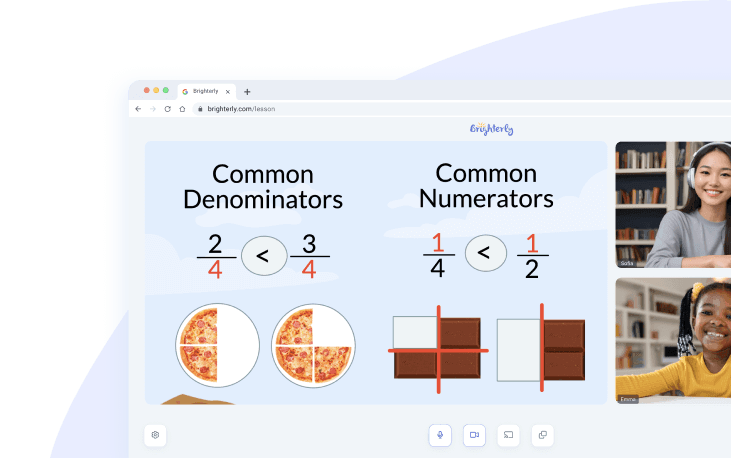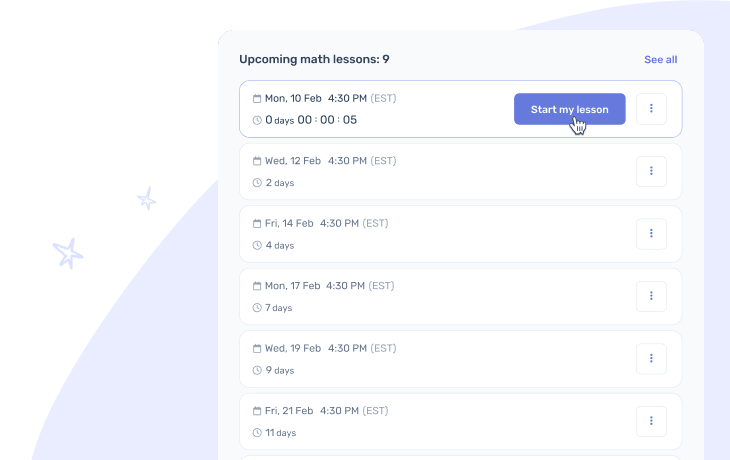Top math tutors in Chicago by Brighterly
Our talented team teaches in Chicago and all across the US to help elementary, middle and high school students improve their math through online private 1:1 sessions and personalized programs.



Brighterly turns math fears into math wins!
Personalized support from expert Chicago math tutors - right from your home.
Math tutors Chicago cost from $17.4/lesson

How much will you pay for Chicago math tutoring?
Brighterly’s tutoring pricing depends on your chosen Learning Membership and how many lessons per week you select.
Pick the plan that best supports your child’s goals and learning style!

Brighterly’s math tutor Chicago: Main benefits
Learning math with Brightelry is fun and effective! Our programs are explicitly adapted to each child’s needs and designed with the American Common Core standards by our top educators.
Brighterly math tutors Chicago truly understand kids’ learning needs
Each student has their own unique learning needs, regardless of the grade. Brighterly tutors personalize every lesson to match your child’s pace, goals, and strengths, making math easier, fun, and effective.
Our tutoring is fully adapted to the school curriculum
Brighterly’s curriculum is fully adapted to the US Common Core, ensuring your child builds the right skills, stays on track with school standards, and gains confidence in every math lesson.
The most cost-effective math tutoring is here
The standard tutoring rate in the US is between $40 and $80 per hour. Brighterly offers affordable and high-quality tutoring, featuring personalized curricula, one-on-one learning, and regular progress reports.
Brighterly math tutors in Chicago match your schedule
Is it hard to find time to drive your kids to a tutoring session? With Brighterly, you get fully flexible online lessons that fit your schedule - anytime, anywhere, stress-free.
How to start math learning with the best math tutor Chicago
Book your trial lesson




